Tagline:
This time the bullets are hitting pretty close to home!
Entire Story In Fewer Words Than Are In This Sentence:
Harry could just kill his Stupid Chief this time.
Homoeroticism:
Once again limited almost exclusively to the fetishization of guns, beginning with the opening credits sequence, which consists of a very long shot of Harry’s hand holding his beloved .44 Magnum in profile before finally turning it to the camera and shooting it all over the audience. Harry does later casually reject the advances of Carol McCoy (Christine White), the estranged wife of his old friend Charlie (Mitchell Ryan), but goes on to actually bed his hot Asian neighbor, Sunny (Adele Yoshioka), who then narrowly escapes being killed by a mailbox bomb meant for Harry, proving that Harry’s women are less certainly doomed than his partners.
Otherwise, there is the young vigilante traffic cop quartet who, according to Harry’s latest doomed partner, Early (Felton Perry), “stick together like flypaper, you know? Everybody thought they were queer for each other.” “Tell you something,” Harry replies. “If the rest of you could shoot like them, I wouldn’t care if the whole damn department was queer.” A random uniformed cop happens to overhear this. He stops in his tracks and ponders, his soul momentarily set free by the possibility of Dirty Harry Callahan openly accepting his shameful secret. Other than that, there is very little hint of the kind of steamy, repressed man-love we would later come to expect from 80s Action Cinema.
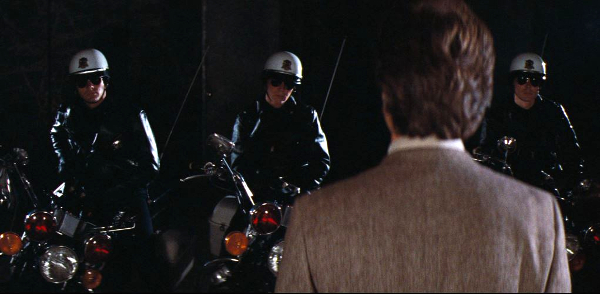
Corpse Count:
Vastly higher than the first movie, this one comes in around a respectable 40, give or take a few. It is difficult to tell, for example, just how many people are massacred in the rooftop pool shooting, but it has to be around a dozen. Harry himself takes out around ten throughout the movie, depending on whether you count his indirect kills of the mobster Palancio (Tony Giorgio) or the final evil motorcycle cop.
Novelty Deaths:
Also much more than in the first movie, beginning with Harry’s calm assassination of an airplane hijacker through a wall he is hiding behind on the plane. According to screenwriter John Milius on the DVD commentary, the hijacker was originally supposed to take a female hostage (much more plausible, really, than just aimlessly running away, as he does), to which Harry was meant to have said, “I don’t even know her,” before blowing the guy away regardless. A truly great missed opportunity there.
Anyway, the aforementioned pool massacre is pretty tasty, and later a pimp (Albert Popwell, who appears as a completely different character in each of the first four Dirty Harry joints) kills one of his girls with a can of drain cleaner, which Harry admiringly says “shows a certain sense of style.” The death of Palancio is also pretty cool, as he accidentally drives headfirst into a low-hanging steel girder that smashes his windshield and skull simultaneously, and Harry takes out the penultimate bad guy by outmaneuvering him on a motorcycle until he flies off the edge of an aircraft carrier and apparently immediately drowns, which is certainly novel, if wildly implausible.
Easily the best one, though, is the killing of Guzman (Clifford A. Pellow) and his Scandinavian sex toys in a high-rise penthouse, which I will now analyze in absurd detail, at the request of one Matt Cale:
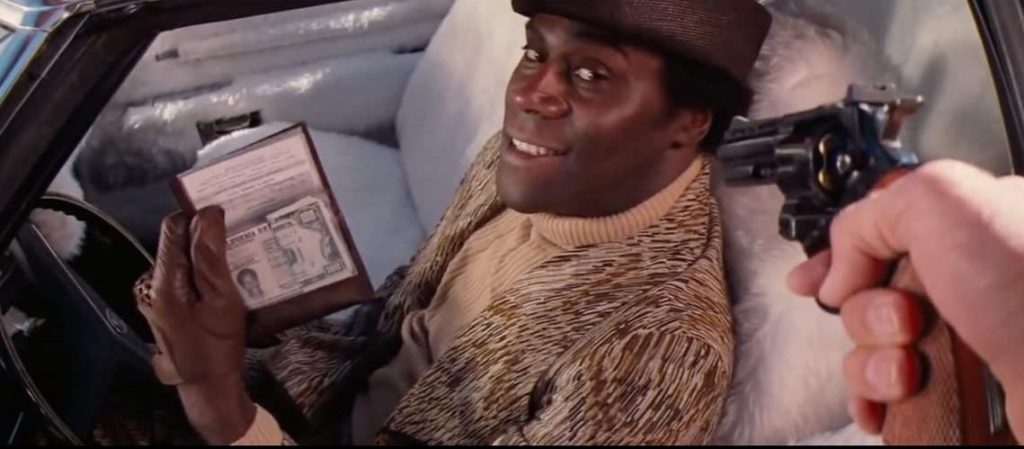
The tension builds steadily, with Lalo Schifrin’s ominous pianos and rattling snare drums setting the tone as the bike cop later revealed to be Davis (David Soul) climbs the fire escape stairs to the penthouse. The surveillance team across the street can be seen to represent us, the voyeuristic audience.
“Take over for me, will ya, Ed?” one says to his partner, having no idea what he’s about to miss. The tension continues to mount as Davis climbs the stairs.
“Damn, I wish something would happen,” Ed says, in a sort of meta commentary on the building suspense. Davis steps in a puddle, leaving bootprints behind on the stairs as a symbol of the grime he has to wade through in his ascension into the light of righteous murder. He readies his weapon, the phallic .357 Magnum, ludicrously fitting the revolver with a silencer, as if this divine vengeance for the People will be in any way quiet or subtle.
He enters the penthouse balcony and quickly dispatches a henchman, then the main target, Guzman, who is as fully nude as his cocaine-loving guests at this point. The svelte Swede male on the bed barely (haha, because he’s naked) has time to plead for his life before he is taken down by two quick shots.
The greatest Novelty Death of the scene (and the movie) is saved for last, though, and perhaps not incidentally for the only female victim of the scene. The Scandihoovian hoor is shot twice in the chest, then crashes through the large picture window and falls 50 stories, but not before smacking into the railing of a balcony a couple of floors down, sending her still screaming body tumbling end over end like the guy who hits the propeller near the end of Titanic (this moment is Oscar-worthy, is what I’m saying).
As Milius points out in the commentary for this scene, sex or anything to do with it is dangerous in the Dirty Harry movies.
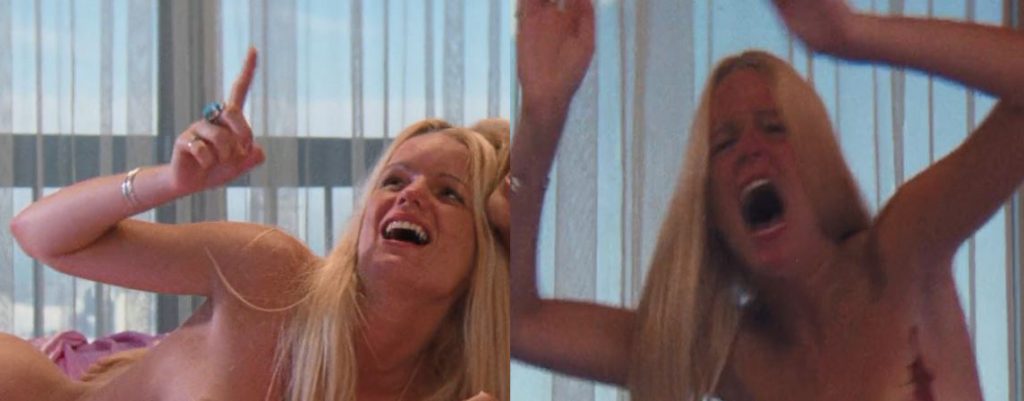
One-Liners:
“Nothing wrong with shooting, as long as the right people get shot.”
“Let’s see how much more there is in that titty bank.”
“Your gun’s out of its holster, Briggs. First time?”
Post-Mortem One-Liners:
“Couldn’t have happened to a nicer bunch.”
“Briggs was right: you guys don’t have enough experience.”
“A man’s got to know his limitations.”
Stupid Political Content:
We’re off to the races right from the start, with the acquittal of evil criminal kingpin Carmine Ricca (Richard Devon) on a technicality, some liberal bullshit about lack of admissible evidence, and the people are outraged. “You know what I think?” shouts one of dozens of protesters outside the courthouse. “Fuck the courts, that’s what I think! They’re wasting too goddamn much time worrying about the rights of killers on the street!”
Ricca and his goons smugly believe they are above the law until they run afoul of one of the vigilante traffic cops who later try to recruit Harry. “Looks like somebody saved the taxpayers a lot of money,” Lt. Briggs (Hal Holbrook) says as he surveys the grisly quadruple homicide. In case there is any doubt as to the movie’s perspective, Milius also opines on the DVD commentary that these fellows certainly got what was coming to them, and even wistfully wishes this sort of thing could happen more in real life.
Harry, of course, feels the same way, at least so far. In fact, when criminal scum get what is coming to them, Harry feels nothing at all. “How can you be hungry after seeing that?” Early asks him, after Harry suggests stopping off at an airport snack stand for “the best burger in town.” “Seeing what?” Harry deadpans. Of course, Harry can’t even enjoy a simple post-murder-scene burger without being recruited for another dirty job when an airplane is coincidentally hijacked at that very airport. The criminal scum is everywhere, and only Harry can contain the spread of the scourge!
Charlie McCoy knows just how bad things have gotten, and he’s losing his shit because of it, as Harry comes to realize when Charlie almost runs him over in the police department parking lot. “These days,” Charlie says, “a cop kills a hoodlum on the street, he might as well just dump the body someplace, because those snot-nosed bastards down at the D.A.’s office will crucify him one way or another. A hood can kill a cop, but let a cop kill a hood! Am I right?”
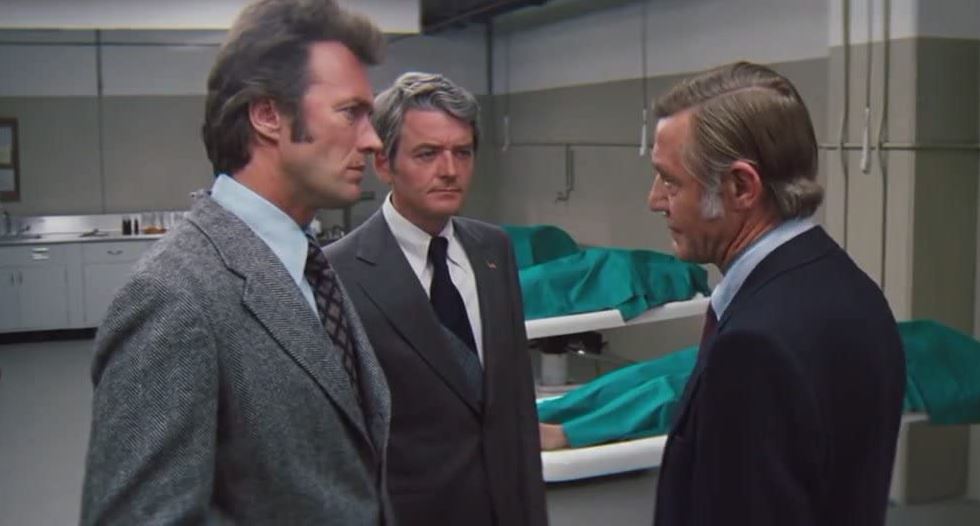
Because of course people get away with killing cops all the time, right?
“I’ll never retire,” Charlie continues heatedly. “Never! I’m going out fighting!” Though Charlie continues to be an important character, he never gets dialogue again, and for all the explicit themes of the movie stated in this one scene, he may as well have just been played by Milius himself.
Another character who ends up outlining the screenwriter’s fantasies for a better world is Davis, when he explains the killer cop quartet (now down to a trio) for Harry in an underground parking garage: “We’re the first generation that’s learned to fight. We’re simply ridding society of killers that would be caught and sentenced anyway if our courts worked properly.”
Davis and the others hope to recruit Harry, and are perhaps as surprised as the audience when Harry refuses, though he always has preferred to work alone. Ideologically, though, Harry would seem to agree with the actions of these renegade cops, at least to a point. As Harry explains that point to Briggs, “When police start becoming their own executioners, where’s it gonna end? Pretty soon you start executing people for jaywalking, and executing people for traffic violations. Then you end up executing your neighbor because his dog pisses on your lawn.”
“There isn’t one man we’ve killed who didn’t deserve what was coming to him,” Briggs says. “Yes, there is,” Harry replies. “Charlie McCoy.” It could be argued, of course, that not everyone at the pool party massacre was guilty of sufficient moral iniquity to be put to death, either, not to mention the Nordic couple at Guzman’s penthouse, but certainly the line has to be drawn at a good cop like McCoy. Harry might not have minded if people he agreed were bad continued getting hot vigilante justice served up to them, but as he tells Briggs, “I hate the goddamn system, but until someone comes along with some changes that make sense, I’ll stick with it.”
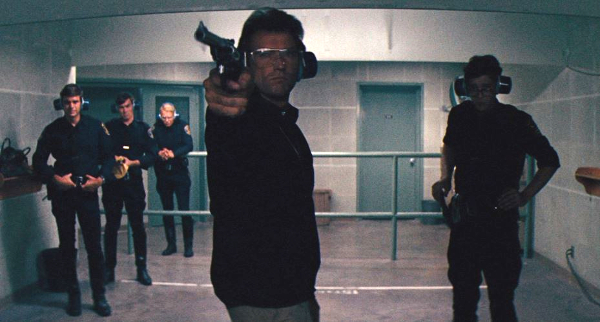
Was There A Stupid Chief?
One of the best, not only because he is played by the great Hal Holbrook but also because he turns out to be not merely stupid but corrupt, so Harry is able to actually kill the Stupid Chief in this one, rather than just being openly contemptuous and maybe punching him in the mouth at some point.
Lt. Briggs starts out as the perfect foil for Harry’s brand of rule-breaking police work, the “symbol of the new liberalism,” as Milius describes him on the DVD commentary. He berates Harry for his record of police brutality and is proud of the fact that he has never drawn his gun from its holster in all his years on the force. He speaks impotently of “law and order” and shouts at Harry about search warrants and simple arrests. “Arresting a killer like Palancio isn’t always simple,” Harry replies. “People are guilty until proven… I mean…” Briggs sputters stupidly.
All this bureaucratic bullshit turns out to be a front for evil, which is both unsubtle and rather murky as a criticism of the liberal forces the Dirty Harry series continually rails against. This plotline would seem to be a response to criticism from Pauline Kael and other critics (though Kael was always the primary critical nemesis of the series) to the first film’s fascist tendencies. Milius and company attempt to draw a line between Harry, who kills only the right people, and Briggs, as if to say, “See, the liberals are the real fascists!” It is, of course, more Stupid Political Content, but still far more subtle than the response to Kael’s continued distaste for the ongoing series (and Clint Eastwood in general) found in The Dead Pool 15 years later.
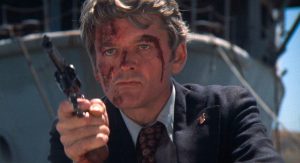
How Bad Is It Really?
Once again, pretty damn good. It’s not a better movie than the original, but it is a better 80s Action Movie, with a quadrupled Corpse Count and an even better Stupid Chief than the great John Vernon as the Stupid Mayor of the first film. Screenwriters John Milius and Michael Cimino would go on to great critical acclaim for their work on Apocalypse Now and The Deer Hunter, respectively, so the pedigree of talent in front of and behind the camera remains high (more importantly, of course, Milius would go on to direct Conan the Barbarian and Red Dawn, two absolutely essential classics of 80s Action).
It is interesting to see Harry, who ends the first movie by throwing away his badge in a symbolic (if obviously not literal) rejection of the system, forced into a grudging defense of that very system. This early in the franchise, and so many years before the Reagan presidency, there is some nuance to the endorsement of violence as a remedy for all of society’s ills. It may only be the murder of Charlie McCoy that gives Harry pause, or maybe it’s that he doesn’t trust anyone but himself to judge who is guilty or not, but he does reject inclusion in the vigilante plot and reluctantly embraces the goddamn system. If Harry is going to break the law and kill people who deserve it, it’s going to be on his own terms. All that and one of the best novelty death scenes in the canon. Not bad at all!
Was There An Atomic Blast At The End?
Briggs gets blown up real good in a car bomb. Cue Post-Mortem One-Liner and Harry walking off into the sunset.
What You Learned:
Vigilante justice should be left to the pros.